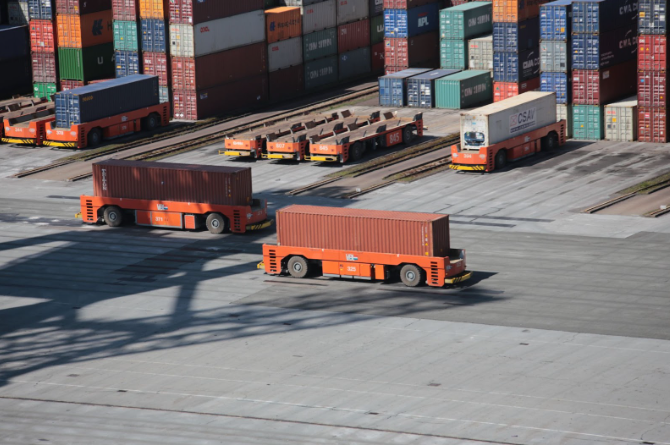The transportation of goods can be carried out in many ways. During this process, different modes of transport and types of loading units are used, so that the cost of the entire project, the time of execution of the order, as well as harmful emissions can be reduced or shortened. One form of transportation that allows optimizing the delivery of goods is intermodal transport. What is worth knowing about it and what are its advantages?
What is intermodal transport?
Intermodal transport is a type of cargo transportation, in which only one type of cargo unit is used with at least two modes of transport. Typically, the transported products are carried in containers or swap bodies. On the way from the shipper to the consignee in intermodal transport, there is no transshipment of the contents of the unit, but only the transfer of the unit, for example, from a car or rail transport to a container ship.
In the implementation of intermodal transport, there is one contract of carriage and one contractor who is responsible for the course of delivery. It is also necessary to unify the transported cargo. With intermodal transport, the process of carriage and documentation is greatly simplified. Several smaller loads and shipments can be consolidated into one large loading unit.
What are the advantages of intermodal transport?
Intermodal transport is a favorable solution if you need to transport heavy goods. Such an option makes it possible to deliver cargo weighing up to 26 tons in a single container without the need for repacking while changing modes of transportation along the route.
The undoubted advantage of modal transportation is also a much lower risk of damage to the goods, possible theft or burglary. For the duration of the order, the cargo unit remains closed. It is also a solution that promotes much lower carbon emissions
Intermodal transport and possible limitations
When deciding on intermodal transport, one sometimes has to reckon with extended transit times. This is often due to the number of voyages and the schedule of container ships with which the carrier works. Rail connections to individual ports also have an impact.
In intermodal transport, it is also not possible to monitor individual containers during transport as sophisticatedly as individual packages in road transport. Most often, the option of tracking during the execution of a shipment is narrowed down to locating the ship’s stay at a particular port. However, to get detailed information, you can contact the shipper or shipowner directly and provide the cargo, or container, number.

